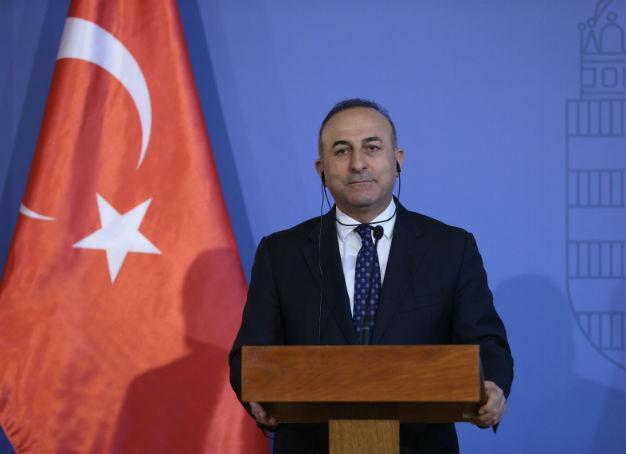Turkey praises planned Syria cessation of hostilities
MUNICH

AA photo
Turkey has praised an agreement between major powers to cease hostilities in Syria to provide humanitarian aid as “an important step” toward resolving the crisis, calling for the opportunity to be seized in order to pave the way for a political solution to the conflict.
The agreement by the 17 countries of the International Syria Support Group (ISSG) “is an important step on the way to finding a solution to the Syrian crisis,” Turkish Foreign Minister Mevlüt Çavuşoğlu said on Feb. 12 on his Twitter account.
“This statement underlined the issues impairing the Geneva process and presented an opportunity to unblock stalemate before the political process. What is important now is embracing this opportunity, stopping the airstrikes, ceasing targeting civilians and providing humanitarian access,” Çavuşoğlu added.
Earlier on Feb. 12, the United States, Russia and a more than a dozen other nations, including Turkey, reached a deal in Munich that is aimed at eventually paving a way for a political transition in Turkey’s war-torn neighbor.
If implemented, a “cessation of hostilities” in Syria, to begin in a week, would allow humanitarian aid to reach besieged towns. It has the potential to be the first diplomatic breakthrough in a conflict that has fractured the Middle East, killed at least 250,000 people, made 11 million homeless and sent hundreds of thousands fleeing into Europe.
But by allowing fighting to rage on for at least another week, it gives the Damascus government and its Russian allies time to press on with an offensive that has transformed the conflict since the start of this month.
Russian warplanes were continuing to bomb northern Syria on Feb. 12, showing no sign of slowing the pace of attacks despite the agreement hammered out overnight.
The “cessation of hostilities” agreement reached by the world powers falls short of a formal ceasefire, since it was not signed by the two main warring parties: The opposition and government forces.
It was announced after marathon talks in Munich aimed at resurrecting Geneva peace talks that collapsed last week.
The 17-nation ISSG also agreed that “sustained delivery” of humanitarian aid will begin “immediately,” with a new U.N. task force scheduled to meet later on Feb. 12 in Geneva to start pushing for much greater access to “besieged and hard-to-reach areas.”
U.S. Secretary of State John Kerry admitted there were “no illusions” about the difficulty of implementing a nationwide “cessation of hostilities” between regime forces and rebels as he announced the deal in Munich alongside Russian Foreign Minister Sergei Lavrov.
Implementation will now be the key, said Kerry. “What we need to see in the next few days are actions on the ground, in the field,” he added.
Lavrov said on Feb. 12 that peace talks should resume in Geneva as soon as possible, and that all opposition groups should participate. But he added that halting hostilities in Syria would be a “difficult task.”
NATO Secretary General Jens Stoltenberg accused Russia of undermining efforts to reach a peaceful solution in Syria by targeting opposition groups instead of the Islamic State of Iraq and the Levant (ISIL) militants and said a lasting peace would only be achieved if this stopped.
“Russia has mainly targeted opposition groups and not ISIL. Air strikes of Russian planes against different opposition groups in Syria have actually undermined the efforts to reach a negotiated, peaceful solution,” Stoltenberg said.
